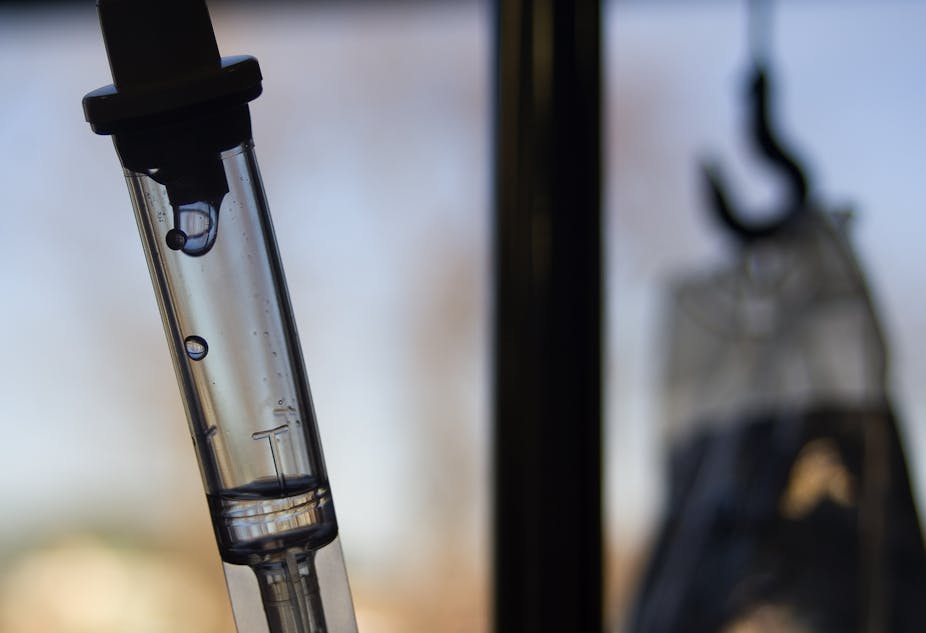Hard cases, it has been said, make bad law. They also prompt us to ask deeper questions about wider causes and longer term ethical consequences - and this is particularly pressing when it comes to assisted dying.
It was reported at the weekend that a woman and her son had been arrested for planning to take a “vulnerable” 71-year-old relative to the Dignitas clinic in Switzerland to avail of its assisted dying facilities. Although more details have yet to emerge, it may be yet another case that demonstrates the complexity of our decisions around death.
Attempts to change the law have certainly become more concerted. The three cases of Paul Lamb, the late Tony Nicklinson and “Martin” were unsuccessful. Reports of legal challenges and of “death/suicide tourism” also raise questions about the most compassionate responses to the suffering of individuals and the most appropriate means to protect patients.
Hard cases
Paul Lamb has been paralysed since 1990, and is reportedly in constant pain. He has said he feels trapped with no way out. He wants the law changed so that a doctor who helped him to die would not be prosecuted, using a defence of necessity. This recognises that there may be situations of overwhelming urgency that could allow for a person to react by breaking the law.
Tony Nicklinson, who died soon after his case was rejected in the High Court in 2012, had locked-in syndrome. His wife, who continues to challenge the ruling against doctor-assisted dying, said “every day waking up was torture for him”.
Martin (not his real name) is also paralysed and wants a change in the law so a health professionals could accompany him to a suicide clinic in Switzerland without fear of prosecution.
Why now?
One reason more attention is being paid to right-to-die cases is our increased acknowledgement of individual autonomy. Gone are the days when patients deferred to professionals and agreed with any end of life option they proposed. People may also doubt the ability of palliative care services to ensure a good death (particularly following the high profile recent demise of the Liverpool Care Pathway, which provided guidance on care of the dying). And people may also see changes in the law in other European countries on euthanasia and assisted dying that don’t appear to be undermining the ethical values of these civilised states.
On the other hand, we have to be cautious about the “Alzheimerisation” of the euthanasia debate, where it’s proposed as a legitimate treatment option. It’s a valid concern and we need to guard against any ethical erosion should assisted dying be legalised. Concern about resources shouldn’t weaken our duty to safeguard individuals.
Hard choices
Views of assisted dying are also informed by personal experience. Three very different experiences come to mind. One man I talked with recently told me about his mother who was paralysed and totally dependent on the help of carers. He said that she felt that her body felt like “a prison”. He supported assisted dying and the best he could hope for now, given the legal situation, was that his mother would die from a chest infection. “There are worse things than death,” he said.
In the course of my research examining ethical aspects of social care, I talked with a woman who worked in a dementia care home. She was passionate about her work and convincingly described the positive difference that good care makes to residents’ quality of life. She thought assisted dying was “unethical”.
Many years ago, I found myself sitting beside a man on a daytime television discussion about euthanasia who had smothered his terminally ill wife because, he said, her suffering was intolerable and he could see no alternative.
Civilised society
The current UK legal situation suits many people but drives some others to despair or to desperate measures.
The discussion generally focuses on the needs and rights of individuals. We are, it has been suggested, an autonomy-focused society so we should have more rights over our lives and bodies.
On the face of it, requests for a doctor-assisted death or accompaniment to a clinic in Switzerland without fear of prosecution for helpers, seems reasonable. Surely we can agree that the sign of any civilised society is that it enables a compassionate response to suffering; a just response to those who lack the physical capability to make the ultimate choice to live or die that is available to the able-bodied; and a cautious response to safeguard the rights and interests of those involved?
People need to be protected so their end of life choices are voluntary and not coerced. We can’t assume that families and friends will always prioritise the best interests of vulnerable individuals.
The interests of professionals also need to be protected and any legislative changes would need to include a conscientious objection clause, to allow individuals to opt out. We need then to proceed cautiously and ensure that we continue to develop the best palliative and dementia care services possible.
The debate needs to move beyond hard cases and to engage head on with the issues that undermine the quality of care for people at the end of life. This includes more ethics education for health professionals and engaging a generally devalued workforce.
We need also to be honest enough to admit that what we might wish for ourselves at the end of life, when all care options have been exhausted, shouldn’t be denied to others. This means prioritising compassion and justice, and safeguarding the interests of our most vulnerable fellow citizens. But it has to be balanced with an awareness of paternalism and over-protectiveness that in the end may undermine us all.

